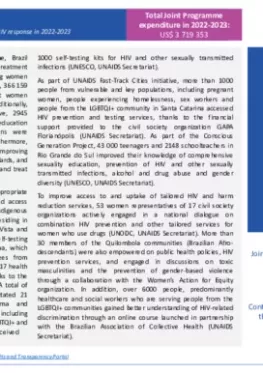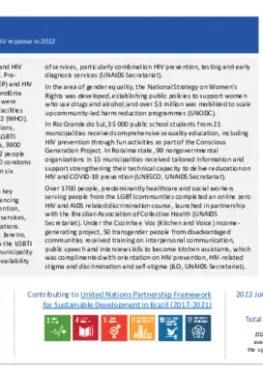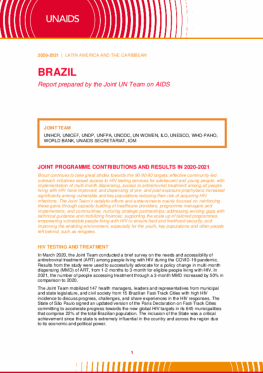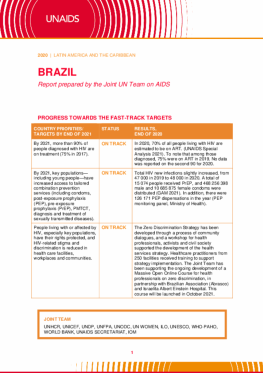|
Brazil
With substantial support from the Joint Programme, Brazil continued to expand HIV prevention, detection and treatment services among vulnerable and key populations, including women and children. In Amazon, Semiarid and Southeast regions, 366 159 children under the age of five and 25 000 pregnant women benefited from qualified and integrated services. Additionally, through the Early Childhood Friendly Units initiative, 2945 healthcare professionals from 471 health and early education units were trained and people-centred action plans were developed to further improve quality of services. Furthermore, 300 health units were recognized for their efforts in improving early childhood care indicators, meeting set quality standards, and successfully implementing initiatives to prevent, detect and treat vertical transmission of HIV and syphilis (UNICEF).
Implementation of community-led and culturally appropriate combination HIV prevention services further improved access among vulnerable and key populations, particularly indigenous refugees and migrants from the Warao ethnic group residing in shelters and people from informal settlements in Boa Vista and Pacaraima. Pre-exposure prophylaxis (PrEP) and HIV self-testing services for key populations were scaled up in Roraima, which receives a significant influx of migrants and refugees from Venezuela. PrEP dispensing services were established in 17 health units and around 1100 PrEP kits were dispensed, thanks to the significant support from the Joint Programme (WHO). A total of 630 people received training and subsequently facilitated 21 workshops on combination HIV prevention, stigma and discrimination for vulnerable and key populations, including migrants, refugees, sex workers and people from the LGBTQI+ and marginalized communities. Workshop participants also received 1000 self-testing kits for HIV and other sexually transmitted infections (UNESCO, UNAIDS Secretariat).





